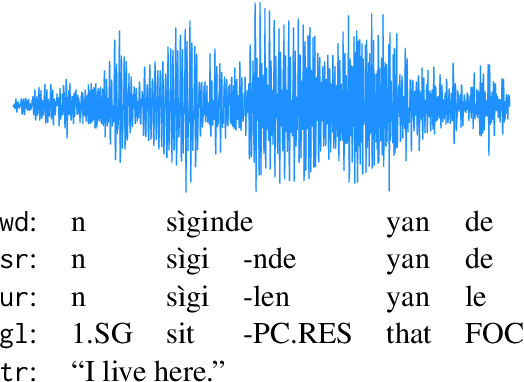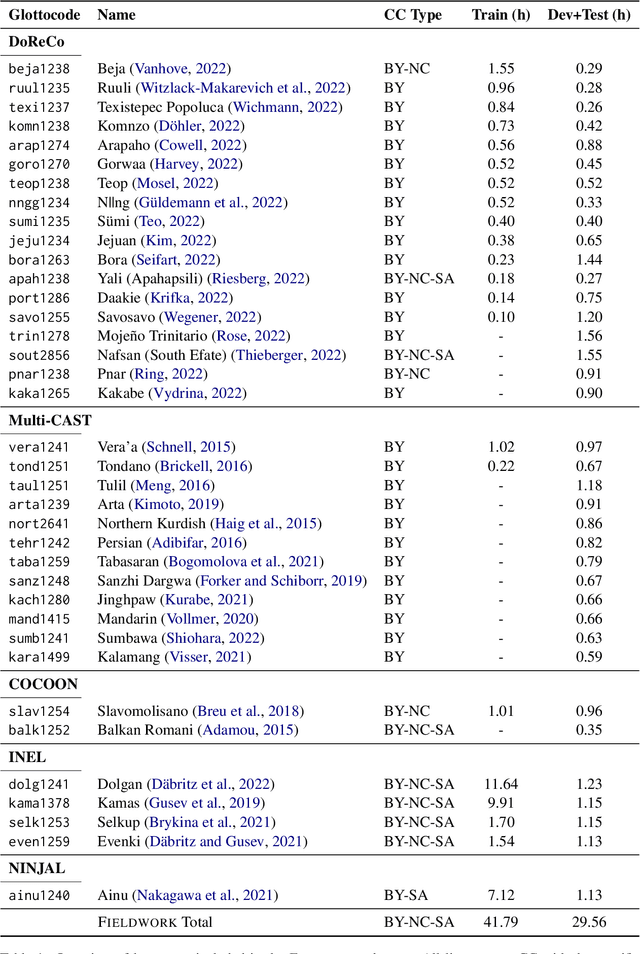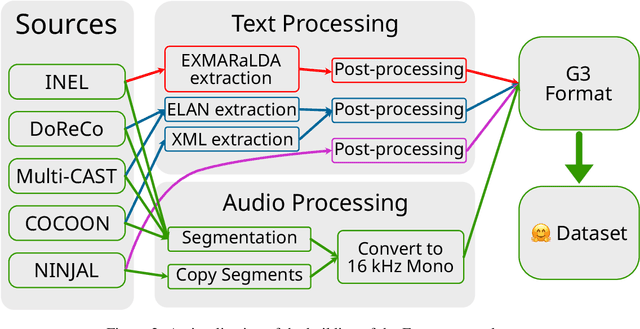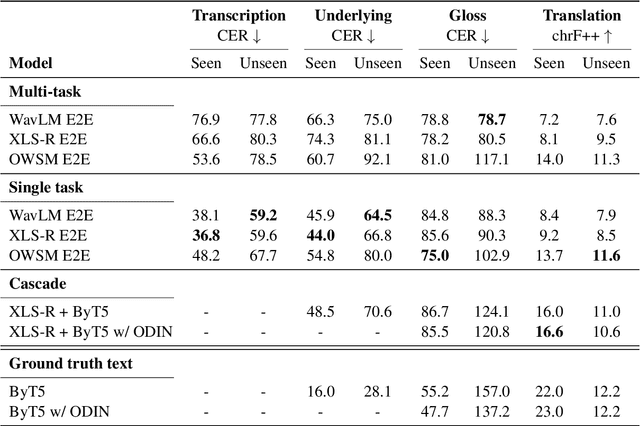Wav2Gloss: Generating Interlinear Glossed Text from Speech
Paper and Code
Mar 19, 2024



Thousands of the world's languages are in danger of extinction--a tremendous threat to cultural identities and human language diversity. Interlinear Glossed Text (IGT) is a form of linguistic annotation that can support documentation and resource creation for these languages' communities. IGT typically consists of (1) transcriptions, (2) morphological segmentation, (3) glosses, and (4) free translations to a majority language. We propose Wav2Gloss: a task to extract these four annotation components automatically from speech, and introduce the first dataset to this end, Fieldwork: a corpus of speech with all these annotations covering 37 languages with standard formatting and train/dev/test splits. We compare end-to-end and cascaded Wav2Gloss methods, with analysis suggesting that pre-trained decoders assist with translation and glossing, that multi-task and multilingual approaches are underperformant, and that end-to-end systems perform better than cascaded systems, despite the text-only systems' advantages. We provide benchmarks to lay the ground work for future research on IGT generation from speech.
 Add to Chrome
Add to Chrome Add to Firefox
Add to Firefox Add to Edge
Add to Edge